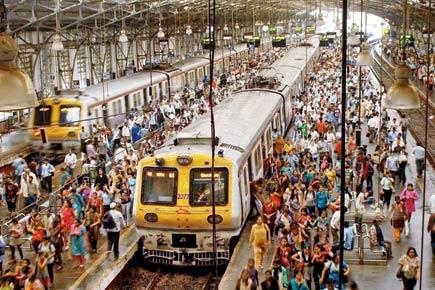Returning to Mumbai feels like coming home — even after all these years away, I can still find my way around it with my eyes closed

 What my muscles had forgotten is the intensity of touch that defines the everyday of this city, where you’re constantly jostling against the tide of fellow dwellers. File pic
What my muscles had forgotten is the intensity of touch that defines the everyday of this city, where you’re constantly jostling against the tide of fellow dwellers. File pic

ADVERTISEMENT
What cements the easy recall is all the time once invested in the gesture, which explains the involuntariness and spontaneity with which the activity gets reenacted.
It is therefore only natural that I should be able to navigate my way from Vidyavihar to VT with my eyes closed, given that for at least five years of my life, this route was routine. And yet it did surprise me to learn that after many years of not having been an active commuter, not having been a regular fixture along the city’s spinal cord, I could simply divine which station the train had arrived at from a callous glimpse of the scenery outside. Even though such a skill has been rendered redundant, thanks to the constant announcements now made inside the train, I still believe it is one of those otherwise inconsequential details that enunciates one’s sense of belonging.
My muscles also seemed to remember how to make a run towards the overhead bridge at Kurla and exactly which platform to go to and where to stand to get into the second-class ladies’ compartment of the fast train. My tongue is somewhat reluctant to ask for a first-class ticket at the counter, an indulgence I only make when I’m travelling with company. I suppose I’m still overcompensating for having lost my very first first-class pass back in college — I got robbed on my very first day of commuting. I thereafter only travelled second class.
The other sound my mouth is unable to make is the tri-syllabic CST. Every day for the last two weeks, I have stood in the quick-moving ATVM line at Vidyavihar and have belligerently asked for a VT-return ticket, as though I’d just arrived from another century and was deeply ignorant about the change in name. The ticket seller never corrected me, perhaps he was old enough and native enough to understand the reference. Maybe next time I visit, there might be someone younger and less forgiving who might give me a sound lesson in regional politics. “But I just can’t bring myself to say CST,” I’ll probably say to him in Marathi, a language that eerily enough my muscles seem to have remembered, even though my failure at it is the subject of my worst recurring dreams.
I’m leaving this city — my city —over the weekend to return to my life in Delhi. Although I’ve loved being in Kurla, I’ve never before experienced being in such a prolonged limbo between two places of belonging; one that bears all the imprints of my past, the other that contains the richness of my present and the seeds for all future articulations of my existing self. This one month has been the longest I’ve stayed in Bombay (oops, Mumbai) since I formally left in 2010, and it’s also been the busiest and most exhausting in a long time because of the sheer volume of projects I’ve had to micro-manage. There was time enough to reacquaint myself with old patterns of behaviour.
What my muscles had forgotten, though, is the intensity of touch that defines the everyday of this city. Unless you are privileged, Mumbai is a city where your skin is constantly in contact with strangers, from the share auto to the station to the cramped compartment in the train, to the queue leading to the shared cab to the office. You’re constantly jostling against the tide of fellow dwellers.
Yesterday, because the ladies’ compartment was overflowing at Kurla, I got into the adjoining general equivalent that was surprisingly slightly less densely packed. I thought I was exercising a certain degree of trust, venturing into predominantly male territory, but when I got inside and was able to position myself, I noticed a small contingent of blind men and one woman on this fast train to VT, all hoping to be part of the Dadar exodus. Their sticks were neatly folded up and bound by a rubber band and held in one hand while the other, when it wasn’t casually clinging to the handles overhead, reached out tenderly to beseech people on the side to give them passage. I couldn’t even begin to imagine what it must actually be like being visually impaired in this city and how much trust you must feel compelled to have in its humanity.
Deliberating on the life and times of Everywoman, Rosalyn D’Mello is a reputed art critic and the author of A Handbook For My Lover. She tweets @RosaParx. Send your feedback to mailbag@mid-day.com
 Subscribe today by clicking the link and stay updated with the latest news!" Click here!
Subscribe today by clicking the link and stay updated with the latest news!" Click here!







